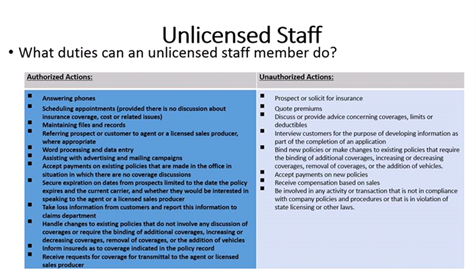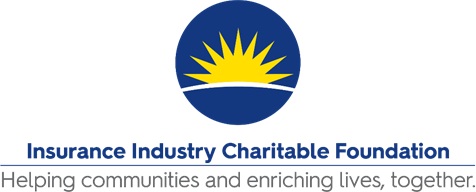|  Acting DFS Superintendent Linda Lacewell has appointed Justin Herring as Executive Deputy Superintendent of the Department’s newly created Cybersecurity Division. The new Cybersecurity Division will enforce the Department’s cybersecurity regulations, advise on cybersecurity examinations, issue guidance on DFS’s cybersecurity regulations, and conduct cyber-related investigations in coordination with the Consumer Protection and Financial Enforcement Division. Herring also serves as Chief of the U.S. Attorney’s Office of New Jersey’s Cyber Crimes Unit, supervising all cybercrime cases in the District of New Jersey. Acting DFS Superintendent Linda Lacewell has appointed Justin Herring as Executive Deputy Superintendent of the Department’s newly created Cybersecurity Division. The new Cybersecurity Division will enforce the Department’s cybersecurity regulations, advise on cybersecurity examinations, issue guidance on DFS’s cybersecurity regulations, and conduct cyber-related investigations in coordination with the Consumer Protection and Financial Enforcement Division. Herring also serves as Chief of the U.S. Attorney’s Office of New Jersey’s Cyber Crimes Unit, supervising all cybercrime cases in the District of New Jersey.
This is the latest indication that the Department intends to aggressively enforce the state's cybersecurity regulation, which applies to all entities licensed by the DFS. As a reminder, Big I NY members have free access to a wealth of resources and guidance to help you comply with this complex regulation.
|
| By Mary Byrnes, AAI-M, AU, Director of Education
As you know, we get all kinds of calls for information from members. They include technical policy, licensing, insurance law, and other questions that really put us to the test. This week brought a really interesting question on personal auto.
A prospective insured inquired about a personal auto quote stating that their gender was male. The quote was presented to the person who then said that they were transitioning to female and wanted a quote based on that. The quote was given and surprisingly enough, it was higher than the male quote. Of the 2 quotes, of course, they wanted the quote for a male.
The question is, when presented with this scenario, what do you do?
The MVR actually holds the answer. Whatever the gender is on the MVR is the one that should be used.
But forward thinking, it is on the policyholder to inform the agent or carrier of any name or gender change. That change has to be submitted to the DMV including a gender change and a name change if applicable. Once that change is made, the agent or the carrier should be notified and the policy endorsed.
Of course, this sent us on to a discussion on why rates for females were higher than males in a given territory. It challenged what we assumed was still the case from when we took our first insurance courses. But that's a topic for another day.
Have a question that you think might stump us (that's not a hypothetical claim scenario), let us know.
|
| By Mary Byrnes, AAI-M, AU, Director of Education E&O training seems to have taken on a life of its own recently. There is a renewed interest of agencies in really making sure that their teams are up to speed on what they need to watch out for. This could be for a variety of reasons: because there’s a concerted effort to put E&O exposures at the forefront to avoid claims; the discount applied to E&O coverage; it’s a great way to earn the 4 CE credits for all licenses; or all of the above.
The truth is that E&O claims bite. They disrupt the lives of the people within an agency with the angst they cause, it takes a lot of time and effort to produce the documentation usually required when a subpoena is presented, and you usually end up with an unhappy client. It's bad all the way around. We could all live without staff walking around with a cloud over their head worrying about something that went wrong.
In a past Annual Big I NY E&O seminar, they covered the topic of “What can an unlicensed person do in the agency?" We're unearthing a handy chart that lays it all out - but it's just one small part of the range of information covered in the seminars.
It's a great thing to attend a Big I NY 2019 Annual E&O Seminar or Webinar. We've got Hauppauge & Rye Brook locations coming up this week! Then a little later in the month, there's Buffalo, Rochester, Syracuse & Utica locations available. And don't forget the webinar option on 6/6/19 (if you'd like a group-view option on the webinar email me at mbyrnes@biginy.org) .
Register now! Get the latest on E&O, the E&O renewal discount (attendance requirements are on the website), and you get the 4 CE credits for ALL Licenses. By attending, you'll be assured of getting all of the latest tips & tools that will be included. Plus there's the added benefit of a little paranoia goes a long way, that's my motto to keep my head in the game.
Here's the promised chart on what an unlicensed person can and shouldn't do within an agency (brought you compliments of Tim Dodge of Big I NY & Keidel, Weldon & Cunningham). Click on the image to see it full-sized.


|
| 
New York's Cybersecurity Requirements For Financial Services Companies regulation is more than two years old now. Big I New York has provided extensive materials to help New York licensed producers comply. One thing we haven't discussed, though, is why the New York State Department of Financial Services concluded that the regulation was necessary. In the introduction to the regulation, the department noted the "growing threat posed to information and financial systems" by a variety of bad actors. "Given the seriousness of the issue and the risk to all regulated entities, certain regulatory minimum standards are warranted," they wrote. This talk of threats can all seem very theoretical. Today, I learned of a concrete example that affects Big I New York and, indirectly, you, at least if you ever ask me questions. No, we have not been hacked. I want to make that crystal clear. However, we subscribe to a database service that includes many of the laws and regulations of the states of New York and Connecticut. Not wanting to embarrass our vendor, I won't identify it, but I can tell you we pay hundreds of dollars a year for this service. It's a great service. If you've ever called or emailed me to ask whether something is legal, you've benefited from our subscription. And last weekend they suffered a malware attack, or at least that's what their public statements have said. This is a very large company that provides a lot of databases for a lot of industries. The malware hit some of their servers but not all. However, to contain the damage, they took all of their servers down and performed forensics. Their statements say that they are slowly bringing each of their services back online, but it's not a quick process. How does this affect Big I New York? I haven't been able to use that database all week. When I try to load the home page, I get a plain white screen with the words "Database not available" on it. How does this affect you? Depending on your question, I may or may not be able to give you an answer. There are some New York laws and regulations of which I've made personal copies. In fact, many of them are posted in the Answer Center of our website. And there are some that I've referred to so many times over the years that I can quote them in my sleep. Others? Not so much. There are some laws and regulations I rarely if ever have to look at because I don't get questions about them. But you know what Mr. Murphy said: If someone wants to know what the required nonrenewal notice period is for an individual long-term disability policy, this will be the week they'll ask. And I'm afraid I haven't memorized that answer. So a large company is a victim of cybercrime, and as a result I might not be able to get you an answer as quickly as you need. There are alternate sources online for this material, but searching those sources is much more cumbersome. I'm hoping to get my database back soon. So far, no one has had an urgent need, but it's a matter of time. This is why cybersecurity matters. It affects real businesses and real people. Reasonable people can differ on the best way to implement it (I certainly have my quibbles with the regulation's requirements,) but I don't think anyone can dispute that we need to protect our networks. This week, the threat isn't so theoretical.
|
| By Mary Byrnes, AAI-M, AU, Director of Education
Who knew that names could be such a big issue? It runs the gamut from an individual name to the ramifications of an agency name. The NYS DFS is really clear, business can only be transacted under the current licensed name. What's the issue with being a sole proprietor?
For an individual, if a name changes for any reason, you must still use your licensed name to conduct insurance business. Well, what does that mean? If Susie Singleton gets married and her new name is Susie Weddington, until she changes the name on her license with the DFS, she must continue to do business as Susie Singleton. This includes email signatures and any other paperwork needs to be conducted under Susie Singleton. Not even hyphenating to Singleton-Weddington would do the trick.
How to change an individual license name: Submit a request to the licensing@dfs.ny.gov and include proof of the name change (marriage license, court document, etc.) When you get the revised license from the DFS, you'll be good to go!
For entities, the same holds true, you can only do business under the entity license name. For instance, if the agency's license name is Arnold Agency, you're stuck with it. You can't put Arnold Insurance Agency on a sign, a webpage, letterhead, business cards etc. You could put Arnold Agency, an insurance agency as a tagline, but not in the name. If you want to change the agency name, you'll need to request a change through the DFS (licensing@dfs.ny.gov) with the email subject line as Name Change Request. The DFS will then approve or disapprove the change and send you to your county clerk to get the name approved for a DBA or to the Department of State for an LLC or Corporation name change. After you get that done, it's back to the DFS with the supporting paperwork.
Sole Proprietorships are an entity type choice. Licenses are issued in the name of the sole proprietor alone or with a TBA (trading business as) name. Why is important that you care? Sole Proprietorships have no shield between personal assets and business assets that are owned under the same name. What does that mean? Suppose there's an E&O claim that has an award that surpasses the E&O limit, the E&O pays the limit, but the amount over the limit, it rests with the sole proprietor personally. The house, the cars, the boat, the camp, the office assets are all at risk.
Partnerships, although not as common as sole proprietorships have some of the same entity type complications. Personal assets of the partners are at risk as well as the business assets that are in the same name. But there's a little difference. If one partner lives in a nice house in a nice neighborhood and has a nice savings account and the other partner lives on the wrong side of the tracks in a shack and has no savings, the assets of both are at risk regardless of the difference in assets between both.
This isn't a discussion of the tax implications of a sole proprietorship or partnership vs. an LLC or corporation, because there are some. That topic is better discussed with someone far better suited to have it.
|
|  Legislation ( A.7193) which would ban the use of non-compete agreements (NCAs) for employees earning $75,000 or less annually, and impose requirements on their use for higher-earning employees passed the Consumer Protection Committee earlier this week, and is headed for a vote in the Codes Committee on Monday.
The key provisions are:
- A complete prohibition on the use of non-compete agreements for any employee earning $75,000 or less (adjusted annually for inflation). The bill does not specifiy if this includes commissions, or is strictly base salary.
- Impose new requirements for the use of NCAs with employees earning over $75,000 per year:
- All NCAs must be written and signed by both employee and employer
- A NCA must be provided to a prospective employee the earlier of a formal offer of employment or 30 days before the NCA goes into effect
- Any NCA with a current employee must be provided 30 days before it goes into effect
- The NCA is no longer enforceable if the employee is terminated without cause
- Employees have a private right of action to sue their employer for violations of these requirements. The court is empowered to void the NCA, as well as award damages, attorneys fees, lost wages, etc.
We have issued a memo of opposition to this bill, and are working to stop it or amend it to minimize the impacts on our members.
|
| The New York Compensation Insurance Rating Board (NYCIRB) has clarified a rule on whether supplemental wage payments count as payroll when a carrier calculates a Workers' Compensation insurance premium. This is a question that some Big I New York members have pressed the NYCIRB to resolve for some time. Some employers make supplemental wage payments to employees in connection with prevailing wage laws such as the federal Davis-Bacon Act of 1931. In some cases, rather than providing employee benefits such as health insurance to employees, employers pay their workers supplemental wages and the workers purchase these benefits on their own. The question was whether insurance carriers should be including the amounts of these payments in the payroll used to calculate Workers' Compensation premiums. The NYCIRB said that the New York State Department of Financial Services has approved a new rule addressing this question: "... when supplemental wages are paid directly to the employee, these wages are to be treated as remuneration for the purpose of calculating an employer’s workers’ compensation policy premium. However, when an employer makes a direct payment to an employee benefit plan, such as a health insurance or retirement plan, these direct payments are to be excluded from remuneration."
The rule takes effect on June 1, 2019. What this means to you: If you insure construction contractors subject to prevailing wage laws, this rule may affect their Workers' Comp premiums. Be prepared to answer your clients' questions on this, particularly when premium audits are performed. |
| 
Have a local charity you love? Here's your chance to nominate it for a local grant through the Insurance Industry Charitable Foundation (IICF)!
WHAT
IICF is offering 10 local grants for $2500. All charities awarded a grant must be sponsored by an insurance entity - so this is your chance to nominate an organization your company or agency supports! HOW
Ask the charity you choose to sponsor to complete the application form and provide the requested documentation. See the guidelines here. Nominations must be submitted electronically to Lauren Pincus.
WHEN
By 5:00 PM on Friday, May 31, 2019. WHY
Independent agents are dedicated to their communities and helping people in times of need, and therefore a perfect match to sponsor charitable organizations for this grant.
|
|  Scott at Advocacy Day Scott at Advocacy Day
What is it like being the voice of independent agents with legislators in Albany?
In a word - empowering! I'm honored to be entrusted to represent our members' interests before state policymakers. There are so many issues that affect the industry, and I love being able to educate lawmakers on complex policy issues and bring it home to the communities they represent.
Describe a typical day.
Two cups of coffee to get started, sometimes three. Read the political blogs to see what's new (always something). Check committee agendas and new bill introductions to see if there are new issues to weigh in on. Phone calls - lots of them...responding to members, working with Big I NY staff, talking to allies and other coalition partners and their lobbyists (what are you hearing?) Answer emails. Walk to the coffee shop if it's a Tuesday (roasting day). Lunch at my desk usually. If it's a session day - walk to the capitol for legislative meetings. More calls. Maybe a fundraiser (or three) in the evening for a key lawmaker.
Share two things that surprised you about the industry or independent agents.
One: how many of our legislative issues are focused on making things better for our customers. We are their advocate in many ways.
Two: How passionate people are about the industry. I can't tell you how many agents have told me, "I never thought I'd be in insurance, but I wouldn't want to do anything else!" The diversity of backgrounds and experience in the industry really speaks to that.
What is one thing you wish agents knew?
The political power we have when we organize. I think it's easy to be cynical about politics, especially in New York. I think the perception is that lawmakers don't care or listen. But I can tell you, when they get a phone call or email from one of our members, or meet with them in their office, they remember. Politics is just like business - it comes down to relationships. Building relationships with our lawmakers is one of the most impactful things we can do as an industry.
What are your passions outside the office?
Anything and everything outdoors. I'm big into mountain biking, backpacking, and traveling.

Bonus round - plug anything you want...
Three words: Political Action Committee. Love it or hate it, money talks in politics. A veteran lobbyist once told me, "You're either at the table or you're on the menu." Dollar for dollar, contributing to our state political action committee, IAPAC, is probably the best investment you can make in the future of your agency.
|
| Insurance industry standards-setting organization ACORD has announced changes to two loss reporting forms that agents and brokers frequently use: - ACORD 1 (2019/07), Property Loss Notice, replacing the 2016/10 edition
- ACORD 2 (2019/07), Automobile Loss Notice, replacing the 2016/10 edition
The new forms, which are for use on and after July 2019, are responses to changes in state regulations. The same changes have been made to both forms: - New ACORD logo
- Reduced font size for one word
- Revision of the Colorado fraud warning and deletion of the Hawaii fraud warning
- Minor revision to the Puerto Rico fraud warning
- Revision to edition date and copyright
What this means to you: You should begin using the new forms in July. You may want to check with your agency management system vendors to verify that they will provide the new forms. |
Follow javascript: SP.SOD.executeFunc('followingcommon.js', 'FollowDoc', function() { FollowDoc('{ListId}', {ItemId}); }); 0x0 0x0 ContentType 0x01 1100 Item Audit Detail /_layouts/15/images/GORTL.GIF /newsfeed/_layouts/15/AuditingLog/ItemAudit.aspx?ItemId={ItemId}&ListId={ListId} 0x0 0x40000000 ContentType 0x01 300 Compliance Details javascript:if (typeof CalloutManager !== 'undefined' && Boolean(CalloutManager) && Boolean(CalloutManager.closeAll)) CalloutManager.closeAll(); commonShowModalDialog('{SiteUrl}'+
'/_layouts/15/itemexpiration.aspx'
+'?ID={ItemId}&List={ListId}', 'center:1;dialogHeight:500px;dialogWidth:500px;resizable:yes;status:no;location:no;menubar:no;help:no', function GotoPageAfterClose(pageid){if(pageid == 'hold') {STSNavigate(unescape(decodeURI('{SiteUrl}'))+
'/_layouts/15/hold.aspx'
+'?ID={ItemId}&List={ListId}'); return false;} if(pageid == 'audit') {STSNavigate(unescape(decodeURI('{SiteUrl}'))+
'/_layouts/15/Reporting.aspx'
+'?Category=Auditing&backtype=item&ID={ItemId}&List={ListId}'); return false;} if(pageid == 'config') {STSNavigate(unescape(decodeURI('{SiteUrl}'))+
'/_layouts/15/expirationconfig.aspx'
+'?ID={ItemId}&List={ListId}'); return false;}}, null); 0x0 0x1 ContentType 0x01 898
|
|
|